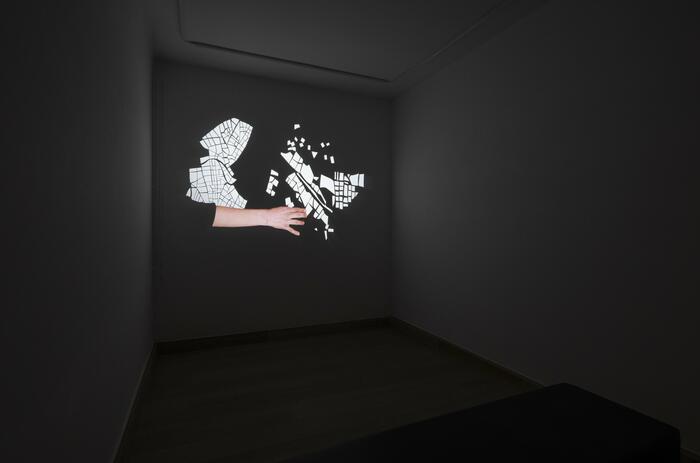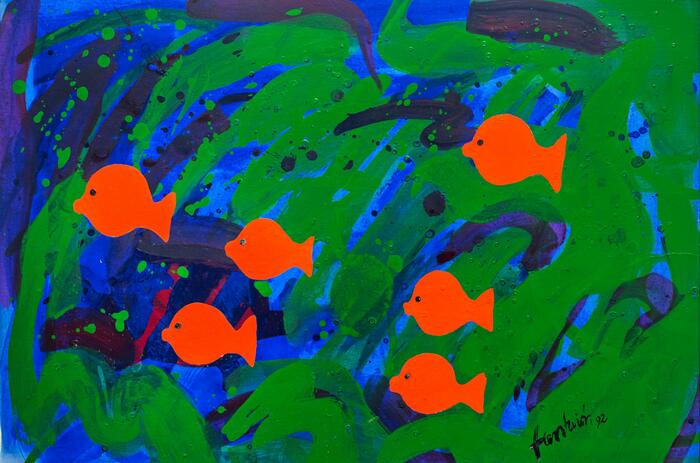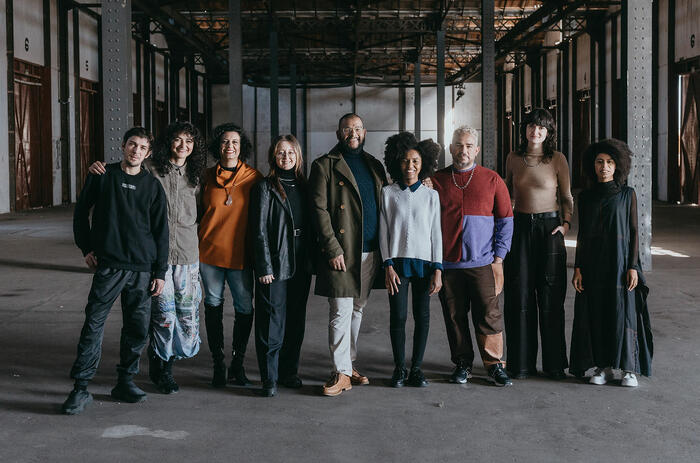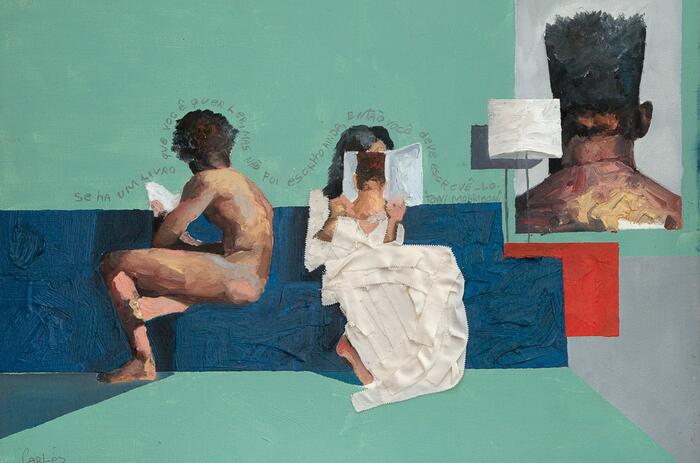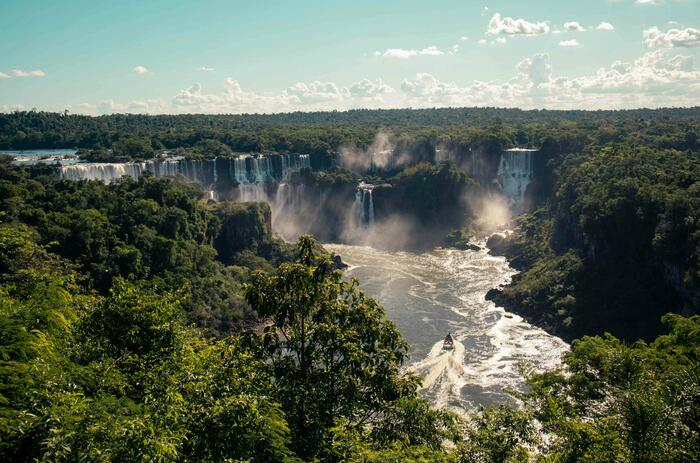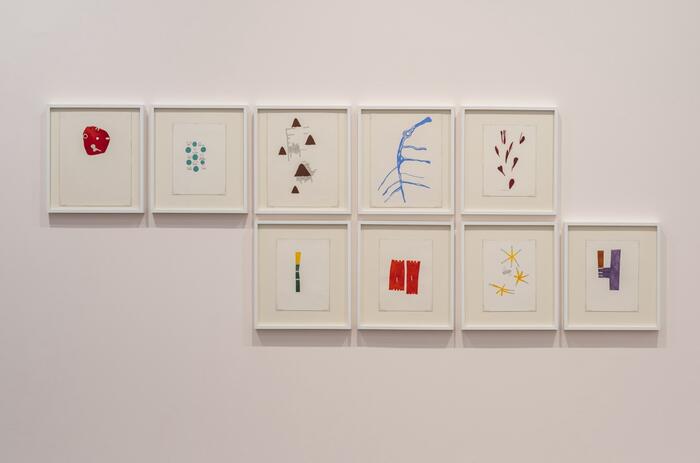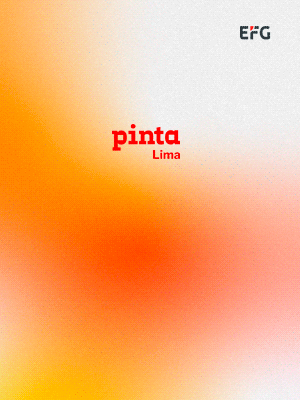“VAI, VAI, SAUDADE”: BRAZIL’S TRAVEL NOTES
Fondazione Donnaregina per le arti contemporanee – museo Madre present Vai, vai, Saudade, a collective exhibition which offers a poetic pathway, exploring a series of stories related to the art produced in Brazil since WWII. Curated by Cristiano Raimondi.
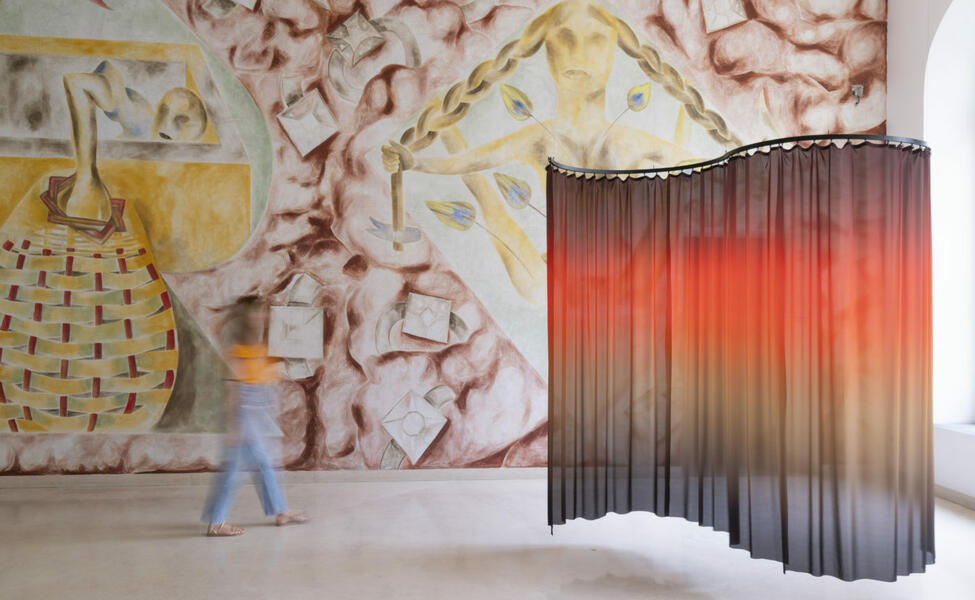
The exhibition features “travel notes” that merge together to form a free but interconnected exhibition itinerary of formal and conceptual, spiritual and earthly, political and geographical themes that together form the basis of a narrative that follows a novel-like logic. Touching on pressing issues of continental, modern and contemporary Brazil, the exhibition takes its title from a samba composed by Heitor dos Prazeres (Rio de Janeiro, 1898–1966), a Carioca artist who was among the first to be subjected to censorship by the military dictatorship in 1964.
Organized on the basis of—sometimes unexpected—associations and dialogues between artists, Vai, vai, Saudade begins with a first chapter represented by the work Livro da Arquitetura (1959–60) by Lygia Pape (Nova Friburgo, 1927–Rio de Janeiro, 2004), which describes the history of humankind as a builder of civilizations through an inventory of architectural archetypes, juxtaposed so as to form an installation with a sacred path by the artist from the Acre region, Hélio Melo (Vila Antimari, 1926–Goiânia, 2001), who narrates the destruction of his natural habitat by “civilized” man through poetic metaphors and allegories. The exhibition concludes with the series Era uma vez a Amazônia by Jaider Esbell (Normandia, Rorania, 1979–São Paulo, 2021), in which the artist recounts the impoverishment of the living conditions of the native populations of the Amazon and the uncertain future of this land after living for countless generations in harmony with its ecosystem.
From the end of slavery—not repealed until 1888—to the subsequent mass immigration waves, mainly from Italy, Lebanon, Japan, and Germany, through to the more recent Bolsonarismo, Brazil has developed amid positivism and democracy, dictatorship and censorship, frustration and hope, without ever abandoning the resilient spirit typical of countries that have been through a similar colonial history. A country that has proved itself able to build an identity based on the valorization of multiculturalism and the fusion of multiple languages, defying the Eurocentric and monolithic approach to art history: since the beginning of the last century, Brazil has stood among the leading protagonists of the avant-garde on the world stage, and there is no avant-garde without the observation of ancestral cultures or those over-simplistically considered “popular.”
Participating artists:
Jhony Aguiar (Marabá, PA, 2001) / Maxwell Alexandre (Rio de Janeiro, RJ, 1990) / Sidney Amaral (São Paulo, SP, 1973–2017) / Antonio Henrique Amaral (São Paulo, SP, 1973–2017) / Bajado (Maraial, PE, 1912–Olinda, PE, 1996) / Hércules Barsotti (São Paulo, SP, 1914–2010) / Conceição dos Bugres (Provinho de Santiago, RS, 1914–Campo Grande, MS, 1984) / Amilcar de Castro (Paraisópolis, SP, 1920 – Belo Horizonte, MG, 2002) / Willys de Castro (Uberlândia, MG, 1926–São Paulo, SP, 1988) / Alex Červený (São Paulo, SP, 1963) / Lygia Clark (Belo Horizonte, MG, 1920–Rio de Janeiro, RJ, 1988) / Antonio Dias (Campina Grande, PB, 1944–Rio de Janeiro, RJ, 2018) // Juraci Dórea (Feira De Santana, BA, 1944) / Jaider Esbell (Normandia, Roraima, 1979–São Paolo, SP, 2021) / Hermelindo Fiaminghi (São Paulo, SP, 1920–2004) / Davi de Jesus do Nascimento (Pirapora, MG, 1997) / Eleonore Koch (Berlin, Germany, 1926 – São Paulo, SP, 2018) / Lucia Koch (Porto Alegre, RS, 1966) / Advânio Lessa (Lavras Novas, MG, 1981) / Laura Lima (Governador Valadares, MG, 1971) / Lidia Lisbôa (Guaíra, SP, 1970) / Renata Lucas (Ribeirão Preto, SP, 1971) / Ivens Machado (Florianópolis, SC, 1942–Rio de Janeiro, RJ, 2015) / Matheus Marques Abu (Rio de Janeiro, RJ, 1997) / Maria Martins (Campanha, MG, 1894–Rio de Janeiro, RJ, 1973) / Arjan Martins (Rio de Janeiro, RJ, 1960) / Ana Mazzei (São Paulo, SP, 1979) / Cildo Meireles (Rio de Janeiro, RJ, 1948) / Hélio Melo (Vila Antimari, Boca do Acre, 1926–Goiânia, GO, 2001) / Tomie Ohtake (Kyoto, Japan, 1913–São Paulo, SP, 2015) / Hélio Oiticica (Rio de Janeiro, RJ, 1937–1980) / Opavivará! (Artistic collective founded in Brasil in 2005) / José Pancetti (Campinas, SP, 1902–Rio de Janeiro, RJ, 1958) / Lygia Pape (Nova Friburgo, RJ, 1927–Rio de Janeiro, RJ, 2004) / Ana Prata (Sete Lagoas, MG, 1980) / Heitor dos Prazeres (Rio de Janeiro, RJ, 1898–1966) / Matheus Rocha Pitta (Tiradentes, MG, 1980) / Gilvan Samico (Recife, PE, 1928–2013) / Miguel dos Santos (Caruaru, PE, 1944) / Agnaldo dos Santos (Ilha de Itaparica, BA, 1926–Salvador, BA, 1962) / Mira Schendel (Zürich, Switzerland, 1919 – São Paulo, SP, 1988) / José Antônio da Silva (Sales Oliveira, SP, 1909–São Paulo, SP, 1996) / Francisco (Chico) da Silva (Alto Tejo, AC, 1910–Fortaleza, CE, 1985) / Miriam Inez da Silva (Trindade, RJ, 1937–Rio de Janeiro, RJ, 1996) / Ariano Suassuna (João Pessoa, PB, 1927–Recife, PE, 2014) / Tunga (Palmares, PE, 1952–Rio de Janeiro, RJ, 2016) / Rubem Valentim (Salvador, BA, 1922–São Paulo, SP, 1991) / Adriana Varejão (Rio de Janeiro, RJ, 1964) / Alfredo Volpi (Lucca, Italy, 1896–São Paulo, SP, 1988) / Liuba Wolf (Sofia, Bulgaria, 1923–São Paulo, SP, 2005) / Niobe Xandó (Campos Novos Paulista, SP, 1915–2010) / Yuli Yamagata (São Paulo, SP, 1989).

